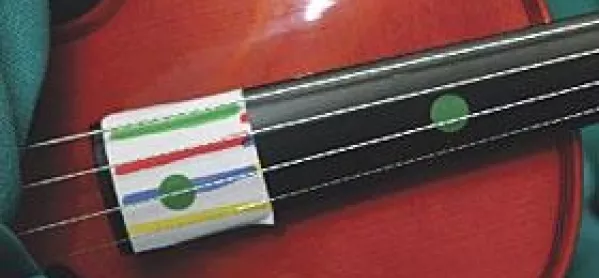Teachers have defended music as an essential life skill as the Assembly government announced a long-awaited review of music education for three to 19-year-olds.
A group of music specialists, including teachers, will explore extracurricular provision such as music and singing lessons, and whether children have access to different musical styles.
The news comes three years after a group of prominent Welsh musicians, including the opera singer Bryn Terfel and harpist Catrin Finch, wrote a letter voicing concerns that youth music in Wales was in decline and calling for a music manifesto.
Schools in England have a pledge to provide every young person with access to a range of music experiences. Emyr Wynne Jones, music adviser for Carmarthenshire and Ceredigion, and chair of the new review group, said that the time had come to explore provision, but denied that a similar manifesto would be written.
“I hope that what comes out will be right for young people in Wales, although obviously we realise that in the current climate there are financial constrictions,” he said.
Seamus Gallagher, music co-ordinator at Nottage Primary in Bridgend, which was praised by Estyn for its arts provision, said he would welcome more professional companies visiting the school to showcase their work and run workshops.
“It’s very well me showing them what to do, but the more children see other people perform, the better,” he said. “That way, they see it’s not just a lesson but a life skill.
“A lot of the children who play instruments lack confidence, and when they get the chance to show off at youth orchestras or recitals it gives them a big boost. They also get to perform in different venues and travel around the country.”
A recent study by the Institute of Education at London University found that learning to play a musical instrument at school improves behaviour, memory and intelligence.
But Mr Gallagher said that schools were struggling with the cost of services such as bringing professionals into the classroom.
“There was a worry in Bridgend that we were going to have to start charging pupils to play instruments, but thankfully that’s not gone through,” he said.
Chris Howard, president of the teaching union NAHT and head of Lewis School Pengam, Caerphilly, said that Wales as a country was good at supporting music outside the curriculum.
“In many parts of Wales we have not lost good locally provided music services,” he said. “I have always been hugely grateful for the tremendous support of Caerphilly.
“Children’s musical performances have a technical edge that comes from high-quality training in music; that’s particularly true of choral singing.”
But Mr Howard said he was sceptical about the possibility of ring-fencing money for music provision.
“There’s absolutely no doubt at all that after 2011 we are going to be back into some very dark years financially,” he said. “Very difficult decisions will have to be made, but I think the review ought to demonstrate that in Wales we have high-quality provision, that we value it and that we can be world class.”
Jane Hutt, education minister, said: “Every child and young person in Wales should have access to music. I am hoping that the task and finish group’s review . will identify any good practice that can be shared so that music provision in Wales can be strengthened.”
Membership of the review group has yet to be finalised, but its report will be submitted in March.




